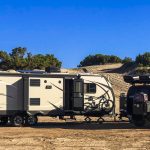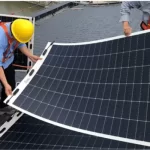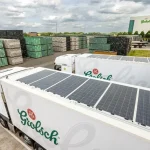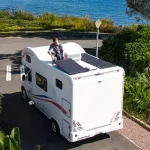Table of Contents
- Key Questions to Address Before Setting Up a Solar System
- How Do Solar Panels Work with Air Conditioners?
- How Many Solar Panels Do You Need to Power an AC Unit?
- What Should You Consider When Choosing Solar Panels for AC Units?
- Why Should You Switch to a Solar-Powered Air Conditioner?
- Which Is Better: On-Grid or Off-Grid Solar AC Systems?
- How Can You Optimize Solar Panels for AC Efficiency?
- How Much Does a Solar-Powered AC System Cost?
- What Are Common FAQs About Solar AC Systems?
- What’s the Next Step Toward Solar Cooling?
Air conditioners are lifesavers in scorching summers, but their energy consumption often translates to high electricity bills. Enter solar-powered AC solutions, a sustainable and cost-effective alternative. This guide will help you understand how to use solar panels for AC units, determine how many solar panels are needed to power an AC unit, and choose the best AC solar panels for your system. Whether you’re considering an air conditioner for solar power or simply curious about a solar air conditioner, this guide covers it Solar power AC
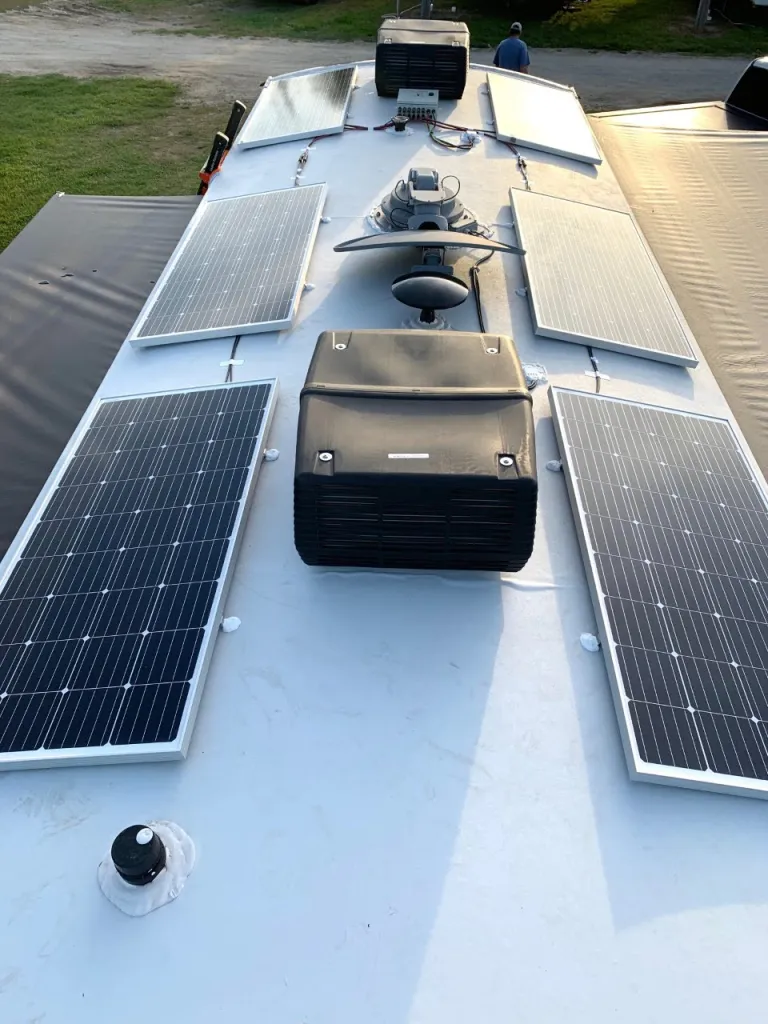
Key Questions to Address Before Setting Up a Solar System
Before establishing a solar system to power air conditioners, the following questions must be answered:
How long will the air conditioner run?
- Determining the daily runtime of your air conditioner is crucial as it directly affects the size of the solar system required.
Do I need a battery to run my air conditioner? If so, which battery is best for a solar system?
- Batteries are essential for storing solar energy for use during nighttime or cloudy days. Choosing the right battery type—lithium-ion for longer lifespan and lighter weight or lead-acid for cost savings—is a key decision.
What is the size of the solar panel?
- The size and wattage of the solar panels should match the air conditioner’s power consumption, factoring in peak sunlight hours in your location.
Is there an inverter?
- Inverters are necessary to convert the DC power from the solar panels into AC power that can run the air conditioner. Selecting an inverter with a capacity 20% higher than your air conditioner’s wattage ensures smooth operation during peak loads.
How Do Solar Panels Work with Air Conditioners?
Air conditioners can seamlessly operate on solar power with the right setup. Solar panels convert sunlight into electricity, which powers the air conditioner, reducing your reliance on the grid. Understanding the power requirements of both the air conditioner and the solar panels is crucial for designing an effective system.
Air Conditioner Power
To determine the number of solar panels required, you first need to know the air conditioner’s power consumption. The power of a 1.5-ton air conditioner varies based on its energy efficiency (star rating):
- 1-Star Rating: Approximately 2400 watts.
- 5-Star Rating: Approximately 1600 watts.
Solar Panel Power
The solar panels must be capable of generating enough electricity to meet the air conditioner’s power requirements, ideally matching the wattage at 100% cooling power. For example, a 1.5-ton, 5-star AC consuming 1600W would require appropriately sized solar panels to run efficiently.
Battery Usage
If you’re using batteries instead of relying on inverters, the battery capacity should be adequate to store enough energy for uninterrupted cooling. The general recommendation is to equip 100Ah batteries per ton of cooling capacity. For a 1.5-ton air conditioner, this translates to 150Ah of battery capacity for consistent performance.
Table: Power Consumption and Required PV System Size
| AC Power Consumption (Watts) | Daily Runtime (Hours) | Required Solar Panel Capacity (kWh) | Battery Capacity (Ah) |
|---|---|---|---|
| 1600 | 6 | 9.6 | 150 |
| 2000 | 6 | 12.0 | 200 |
| 2400 | 6 | 14.4 | 240 |
How Many Solar Panels Do You Need to Power an AC Unit?
To calculate the number of panels required, consider the AC unit’s power consumption, your region’s sunlight hours, and panel efficiency.
- 1.5-Ton AC Power Consumption:
- Typical range: 1600W to 2400W depending on the energy efficiency rating.
- General Formula: Number of Solar Panels=AC Power Consumption (Watts)Panel Wattage × Peak Sunlight Hours\text{Number of Solar Panels} = \frac{\text{AC Power Consumption (Watts)}}{\text{Panel Wattage × Peak Sunlight Hours}}Number of Solar Panels=Panel Wattage × Peak Sunlight HoursAC Power Consumption (Watts)
- Example Calculation:
If your AC consumes 2100W, and you use 300W panels in a region with 5 peak sunlight hours, you’ll need: Panels Required=2100300×5=7 panels.\text{Panels Required} = \frac{2100}{300 \times 5} = 7 \text{ panels.}Panels Required=300×52100=7 panels.
What Should You Consider When Choosing Solar Panels for AC Units?
When selecting solar panels for AC units, you must consider factors like efficiency, durability, cost, and the specific requirements of your air conditioner. Here’s a detailed breakdown to guide your decision:
Efficiency
Look for solar panels with a conversion efficiency above 20%. Higher efficiency means more energy output from limited sunlight, making them ideal for areas with lower peak sunlight hours. For example, Sungold Solar’s PA621 panels combine lightweight design with superior energy efficiency.
Durability
Panels coated with ETFE (ethylene tetrafluoroethylene) are highly resistant to harsh weather conditions, ensuring durability and a lifespan of up to 25 years. This makes them suitable for outdoor installations on rooftops, RVs, or off-grid locations.
Cost
While high-efficiency panels often have a higher upfront cost, they provide greater long-term savings by generating more power over their lifetime. For small setups or budget-conscious users, opting for 200-watt solar panels is a viable option.
200-Watt Solar Panels: Are They Enough?
If you’re running a 100-watt air conditioner, one 200-watt solar panel would suffice under ideal conditions. However, larger air conditioners will require multiple panels.
Power Calculation Example:
- An air conditioner using 4.9 amps and 115 volts consumes approximately 564 watts per hour.
- To run solely on solar power, particularly with an off-grid setup, you would need panels capable of generating at least 2100 watts to cover continuous usage and storage needs.
Why Should You Switch to a Solar-Powered Air Conditioner?
Cost Savings: A solar-powered AC reduces electricity bills by up to 70% during peak summer months.
Eco-Friendly: Solar energy cuts carbon emissions, making it a greener choice.
Energy Independence: Protects against grid outages, ensuring reliable cooling year-round.
Scalable Systems: Easily add more panels as your cooling needs grow.
Which Is Better: On-Grid or Off-Grid Solar AC Systems?
On-Grid Systems: Ideal for urban areas, these systems feed excess solar power into the grid, offsetting your electricity bills.
Off-Grid Systems: Perfect for remote locations, these systems store solar energy in batteries for use anytime.
How Can You Optimize Solar Panels for AC Efficiency?
To maximize the performance of your solar air conditioner, follow these best practices:
- Placement: Install panels at the optimal tilt and direction to capture maximum sunlight.
- Maintenance:
- Clean panels every 2-4 weeks to remove dust and debris.
- Inspect the system annually to ensure all components are functioning properly.
- Inverter Selection: Choose an inverter with at least 20% higher capacity than your AC’s power consumption to handle peak loads.
How Much Does a Solar-Powered AC System Cost?
Let’s break down the investment for a solar-powered AC system:
| Component | Cost Range (USD) |
|---|---|
| Solar Panels (3kW system) | $6,000 – $8,000 |
| Inverter | $800 – $1,500 |
| Batteries (Optional) | $1,500 – $3,000 |
| Installation | $1,000 – $2,500 |
| Total | $9,300 – $15,000 |
Savings: A solar AC system can reduce annual cooling costs by $1,000 to $1,500, achieving payback within 6-10 years.
What Are Common FAQs About Solar AC Systems?
Q1: Can solar panels run an air conditioner directly?
A: Yes, solar panels for AC units can power air conditioners directly via an inverter or store energy in batteries for later use.
Q2: Are solar-powered air conditioners efficient?
A: Modern solar air conditioners are highly efficient, especially when paired with high-efficiency solar panels and inverters.
Q3: What happens during cloudy days?
A: On cloudy days, an on-grid system draws power from the grid, while off-grid systems rely on battery storage.
Q4: Can I retrofit an existing AC for solar power?
A: Yes, traditional air conditioners can be integrated into a solar system using the right inverter and panel configuration.
What’s the Next Step Toward Solar Cooling?
Switching to a solar-powered air conditioner is a game-changer for energy savings and sustainability. By investing in the right solar panels for AC and optimizing your system design, you can enjoy reliable cooling while significantly reducing your carbon footprint.
For high-performance solar panels for air conditioners, explore Sungold Solar’s products. Need expert advice? Contact us at sales@sungoldsolar.cn.




